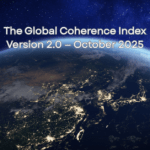“Diplomacy can and will matter; little is inevitable in international relations.”
Richard N. Haass
Who is Richard N. Haass?
Richard N. Haass is a distinguished American diplomat and foreign policy expert. Born in 1951, Haass has served in various significant roles, including as the President of the Council on Foreign Relations since 2003. He has also worked as the Director of Policy Planning for the U.S. Department of State and held several advisory positions under different administrations. Haass is known for his extensive writings on diplomacy, U.S. foreign policy, and international relations.
Analysis of Haass’ Quote
“Diplomacy can and will matter; little is inevitable in international relations.” This quote by Richard N. Haass underscores the critical role of diplomacy in shaping global outcomes.
An eclectic theoretical view that combines Realism and Idealism offers a nuanced understanding of this assertion, recognizing the interplay between power politics and the potential for cooperation.
Realist Perspective From a realist standpoint, international relations are primarily driven by power and the self-interest of states. Realists argue that the international system is anarchic, with no central authority to enforce rules or norms. In this environment, states must prioritize their survival and security, often leading to competitive and conflictual interactions.
Realists acknowledge the importance of diplomacy as a tool for states to navigate this anarchic system. Diplomacy allows states to manage their relations, form alliances, and negotiate terms that can prevent conflicts. The realist perspective highlights that while power and security concerns are paramount, diplomacy can still play a crucial role in achieving strategic objectives and mitigating the risks of war.
Idealist Perspective Idealism, on the other hand, emphasizes the potential for cooperation, the role of international institutions, and the importance of ethical norms in international relations. Idealists believe that human nature, despite its flaws, is capable of progress and that states can work together to build a more peaceful and just world.
From an idealist viewpoint, diplomacy is essential for fostering mutual understanding, building trust, and promoting international norms that can lead to cooperative and peaceful outcomes. Idealists argue that diplomacy can create frameworks for conflict resolution, enhance communication, and help establish long-term peace through international agreements and institutions.
Combining these perspectives, Haass’s quote can be analyzed through an eclectic theoretical lens. This approach recognizes that while the anarchic nature of the international system and the self-interest of states (realism) set constraints, there is also significant room for cooperation and progress through diplomacy (idealism).
Haass’s assertion that “little is inevitable in international relations” suggests that the outcomes in global politics are not predetermined by the structural constraints of anarchy alone. Instead, the actions and decisions of states, particularly through diplomatic efforts, can shape and alter the course of international events. This view aligns with the realist acknowledgment of the strategic utility of diplomacy and the idealist belief in the transformative potential of cooperative engagement.
References by ChatGPT:
Haass, R. N. (2010). War of Necessity, War of Choice: A Memoir of Two Iraq Wars. Simon & Schuster.
Jervis, R. (1978). Cooperation under the Security Dilemma. World Politics, 30(2), 167-214.
Keohane, R. O., & Nye, J. S. (1977). Power and Interdependence: World Politics in Transition. Little, Brown.
Human References:
- ChatGPT. (n.d.). OpenAI. https://chat.openai.com/#
- CFR Editors. (2016, 25 octubre). Richard Haass. Council On Foreign Relations. https://www.cfr.org/expert/richard-haass
- Idealism versus realism. (2023b, mayo 5). CFR Education From The Council On Foreign Relations. https://education.cfr.org/learn/reading/idealism-versus-realism









No responses yet